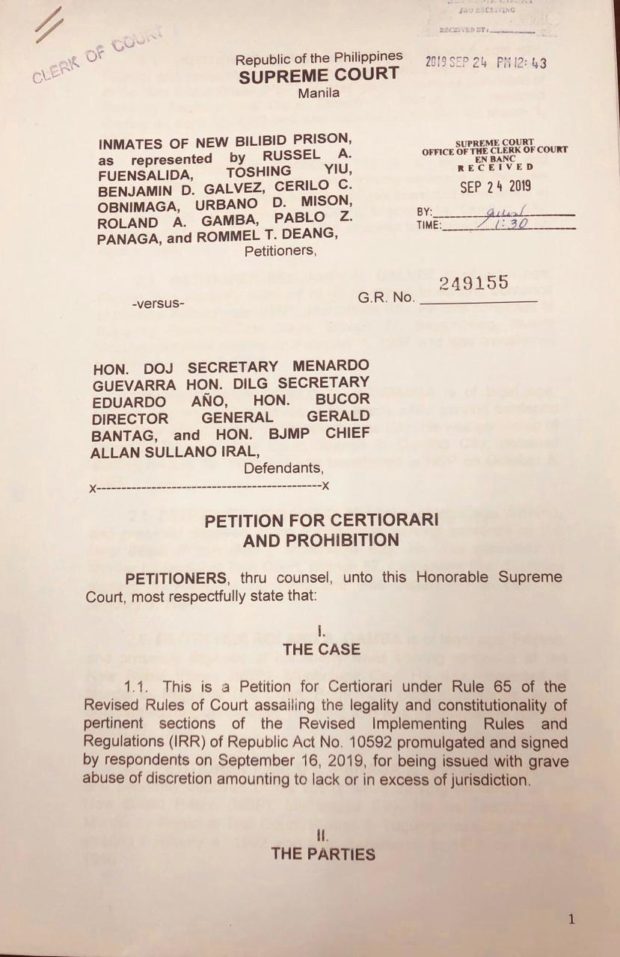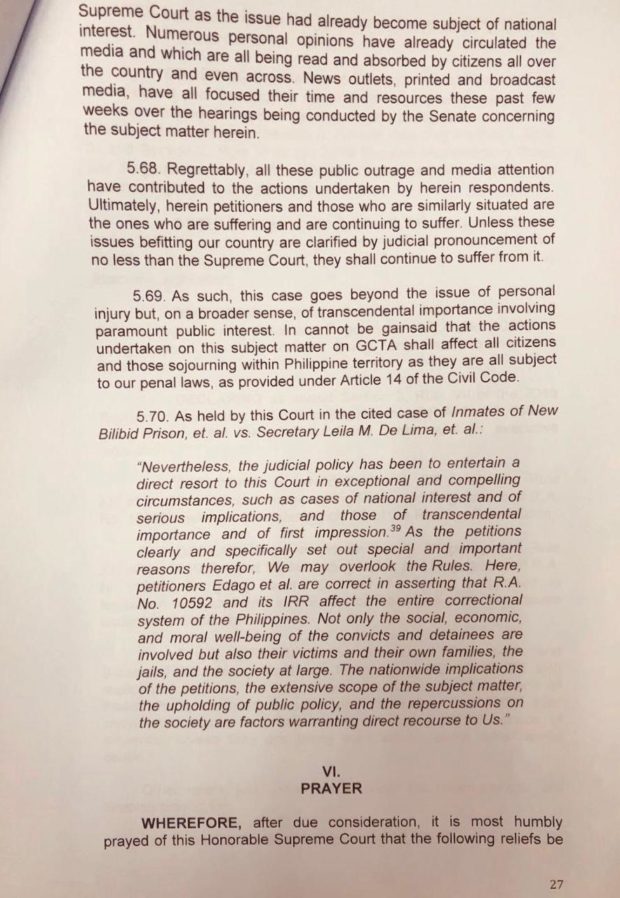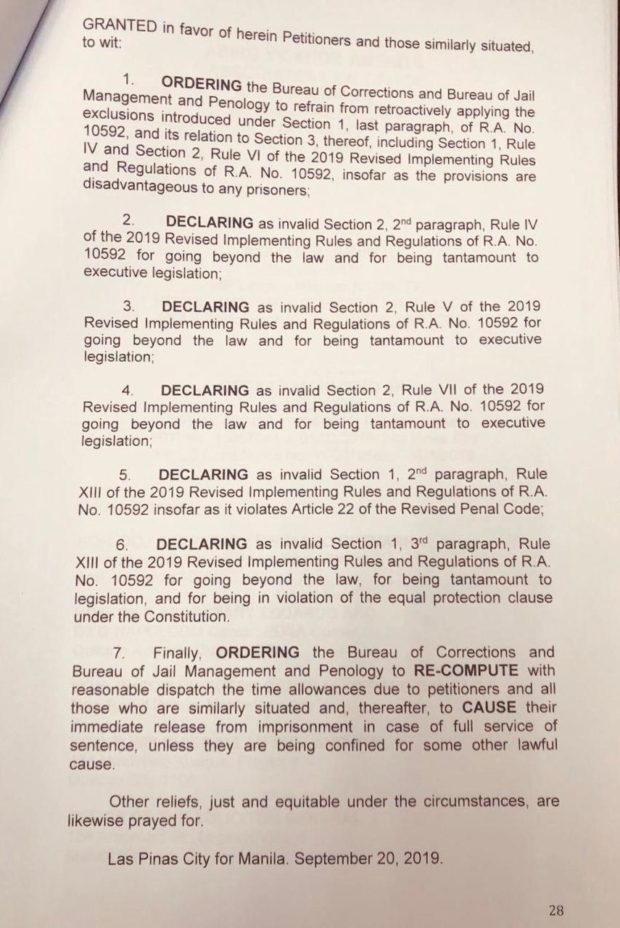Bilibid inmates challenge legality of revised IRR on GCTA
MANILA, Philippines — Inmates from the New Bilibid Prison (NBP) challenged before the Supreme Court the legality of several provisions of the Implementing Rules and Regulations (IRR) of Republic Act 10592 or the Expanded Good Conduct Time Allowance (GCTA) Law.
The same petition also asked the Supreme Court to stop the Bureau of Corrections (BuCor) and the Bureau of Jail Management and Penology (BJMP) from retroactively apply the exclusions introduced under Section 1 of the Expanded GCTA Law and relations to provisions of the IRR.
Petitioners told the high court that said provisions are “disadvantageous to any prisoner.”
The Expanded GCTA Law has increased the reward of time that are shaved off a person deprived of liberty’s (PDLs) prison term. The Supreme Court in June this year said that implementation of the law should be retroactive, meaning it will cover PDLs even before the law was enacted.
However, a joint committee by the Department of Justice (DOJ) and Department of Interior and Local Government (DILG) reviewed the IRR following reports that former Calauan Mayor Antonio Sanchez who was meted with nine penalty of reclusion perpetua will be released from prison because of good conduct.
Under the revised IRR, recidivists, habitual delinquents, escapees, those charged with heinous crimes and an accused who, upon being summoned for the execution of his sentence has failed to surrender voluntarily before a court of law, are excluded from GCTA under RA 10592.
The revised IRR also states that disqualified PDLs under RA 10592, such as heinous crime convicts, but who were convicted before the law became effective in 2013, shall be entitled to GCTA under the Revised Penal Code.
The same IRR also states that heinous crime convicts and those who were convicted after the law became effective in 2013 shall not be entitled to any type of GCTA.
Petitioners said “it becomes clear that the deprivation of application of greater GCTA and consequent prolongation of imprisonment of herein petitioners and those similarly situation constitute violation of their substantive rights.”
They said that the public outrage about the supposed “erroneous” application of GCTA led the DOJ and DILG to revise the IRR.
“Ultimately, herein petitioners and those who are similarly situated are the ones who are suffering and are continuing to suffer. Unless these issues befitting our country are clarified by judicial pronouncement of no less than the Supreme Court, they shall continue to suffer from it,” read the petition.
Justice Secretary Menardo Guevarra earlier said they welcome any legal challenge to the revised IRR.
Early this month, President Rodrigo Duterte ordered heinous crimes convicts released via GCTA to surrender.
Based on the BuCor list provided to the Senate, DOJ, DILG and Philippine National Police (PNP), a total of 445 PDLs have been released by the previous administration since 2014 while since the Duterte assumed office in 2016 to May of 2019, 1,714 PDLs have been released. After the Supreme Court ruled that RA 10592 should be applied retroactively, 200 PDLs have been released by the BuCor.
The list, however, has included those who are acquitted, granted parole and given conditional pardon by the President himself. The DOJ has yet to finish a cleaned up list.
READ: Even acquitted, paroled and pardoned inmates included in GCTA list
Guevarra said more than 2000 PDLs have surrendered which is “phenomenal.”
To date, 52 PDLs who surrendered but were erroneously included in the BuCor list have been released. /je
RELATED STORIES


